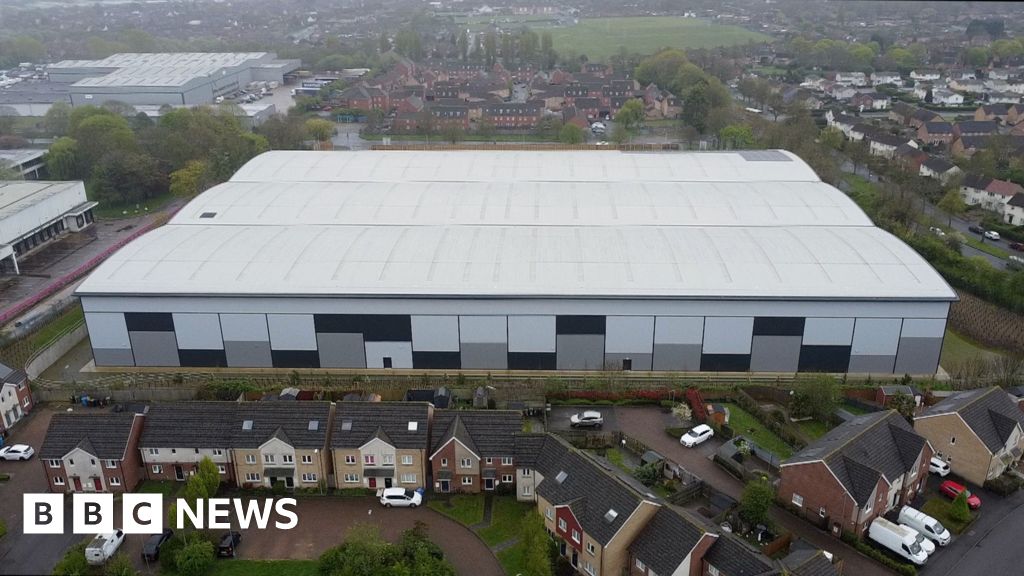Wall Street Gains Amid Hopes for Trade Tensions Easing between US and China

In a positive turn of events for investors, Wall Street has witnessed a rally for a second consecutive day, buoyed by escalating hopes of a de-escalation of trade tensions between the United States and China, the worlds two largest economies. This surge signals a potential shift in the ongoing trade conflict that has gripped global markets for some time.
President Donald Trump, addressing reporters at the White House on Wednesday, reiterated his commitment to reduce the substantial tariffs currently imposed on China, although he made it clear that the timing of any reductions hinges on Beijing's response. Trump stated, That depends on them. We have a situation where we have a very, very great place. Its called the United States of America, and its been ripped off for years and years, in response to inquiries about the timeline for lowering the hefty 145 percent tariffs that affect a majority of Chinese imports.
The President expressed optimism about the prospects for reaching favorable trade agreements, stating, In the end, what I think is going to happen is were going to have great deals, and by the way, if we dont have a deal with a company or a country, were going to set the tariff. He emphasized his good relationship with Chinese President Xi Jinping and conveyed his hope for constructive dialogue leading to a resolution. Otherwise, we will set a price, he added, suggesting a firm stance on tariff negotiations.
When pressed about whether his administration was engaging in active discussions with China, Trump responded positively, saying, Actively. Everything is active. Everybody wants to be a part of what were doing. His comments came as the financial markets reacted favorably, with the benchmark S&P 500 witnessing a notable increase of 1.67 percent, while the tech-heavy Nasdaq Composite rose even higher, closing up by 2.50 percent. This uptick followed remarks from US Treasury official Scott Bessent, who described trade with China as unsustainable, further fueling investor optimism.
Additionally, a report from the Wall Street Journal indicated that the Trump administration is contemplating a significant reduction in tariffs on Chinese goods, potentially lowering them by 50-60 percent. According to sources familiar with the discussions, such a move would be contingent upon China reciprocating by reducing its own tariffs on American products, which currently stand at 125 percent.
On Tuesday, President Trump acknowledged the burden of the 145 percent tariff on Chinese goods, noting that it was very high and promising that it would come down substantially in the near future. This admission reflects a shift in rhetoric as the administration grapples with the economic consequences of the trade war.
In contrast, Chinese officials have firmly rejected protectionist measures such as tariffs, warning that they are prepared to fight to the end if the US continues to escalate its trade offensive. During a regular media briefing, Chinese Foreign Ministry spokesperson Guo Jiakun remarked, We have made it very clear that China does not look for a war, but neither are we afraid of it. We will fight, if fight we must. He also opened the door for negotiations, stating, Our doors are open if the US wants to talk. If a negotiated solution is truly what the US wants, it should stop threatening and blackmailing China and seek dialogue based on equality, respect and mutual benefit.
The ongoing US-China trade war has raised alarm bells regarding a potential global economic slowdown, prompting the International Monetary Fund to revise its growth forecasts for 2025, dropping the estimate from 3.3 percent to 2.8 percent earlier this week.
On the legal front, a coalition of 12 US states, including Arizona, Colorado, Connecticut, Illinois, and New York, has filed a lawsuit challenging President Trumps authority to impose tariffs without congressional approval. The lawsuit, lodged in the US Court of International Trade in New York, argues that Trump has upended the constitutional order and brought chaos to the American economy. Arizona Attorney General Kris Mayes criticized the tariffs, declaring, President Trumps insane tariff scheme is not only economically reckless it is illegal. Arizona cannot afford President Trumps massive tax increase. No matter what the White House claims, tariffs are a tax that will be passed on to Arizona consumers.


























